Donald Trump leads Hillary Clinton by 19 points — 55 percent to 36 percent — among voters who are currently serving or have previously served in the U.S. military, according to the latest NBC News|SurveyMonkey Weekly Election Tracking Poll.
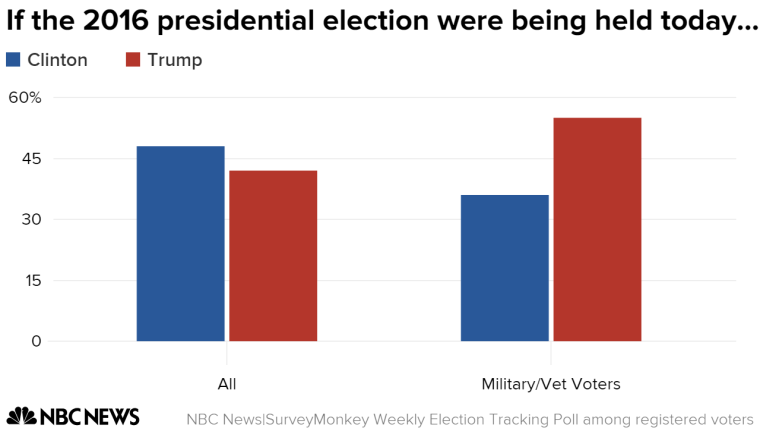
The poll was conducted online from August 29 through September 4 among 32,226 registered voters, including 3,358 who have previously served or are currently serving in the U.S. military.
Despite several controversial statements regarding war veteran Sen. John McCain and Trump’s criticism of the Khan family, the GOP nominee has worked hard to secure the support of veterans and U.S. military members. On Tuesday morning, a group of 88 retired generals and admirals signed a letter backing Trump to reverse the “hollowing out” of the U.S. military.
Clinton's campaign, meanwhile, announced Wednesday that 95 retired generals and admirals have endorsed her presidential bid.
Though Trump comfortably earns the support of military-affiliated voters overall, Clinton is perceived more favorably on the use of nuclear weapons.
A sizable number of military and veteran voters say they would not be confident in Clinton or Trump’s ability to be an effective commander-in-chief of the nation’s military — but a slight majority would be confident in Trump (53 percent).
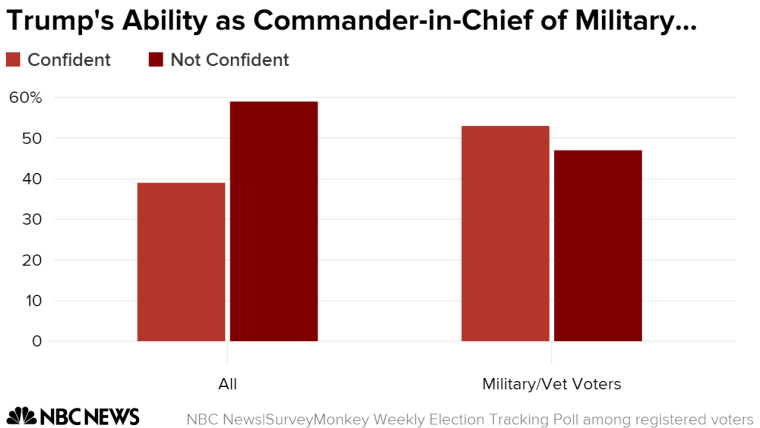
Overall, 47 percent of military and veteran voters said they would not be confident in Trump’s ability to serve as an effective commander-in-chief of the U.S. military. A slight majority (53 percent) of these voters would feel confident in his ability to serve effectively.
Among all registered voters, 59 percent would not be confident in his ability to serve as commander-in-chief of the military and just 39 percent would feel confident.
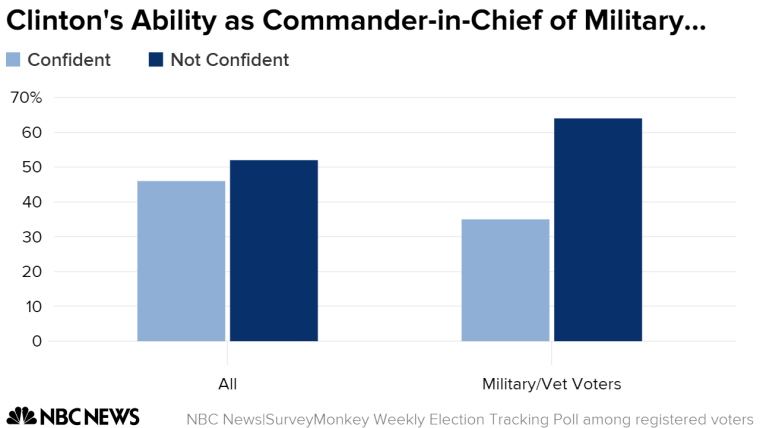
In contrast, just 35 percent of military and veteran voters would feel confident in former Secretary of State Clinton’s ability to serve as commander-in-chief. A large majority (64 percent) would not be confident in her ability.
Among voters overall, a smaller majority (52 percent) said they would not be confident in her ability to serve. Just 46 percent said they would be confident.
Among voters overall, Trump does slightly better than Clinton (40 percent to 39 percent) on the handling of veterans issues. Among military and veteran voters, he does even better (53 percent to 28 percent).
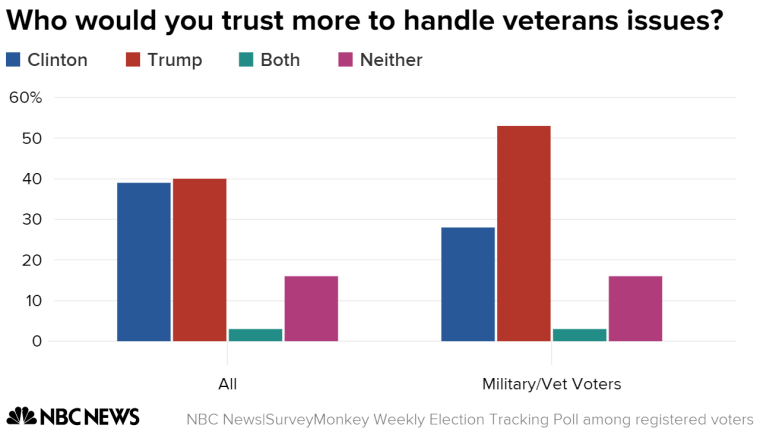
Clinton makes up ground against Trump, however, on the issue of nuclear weapons.
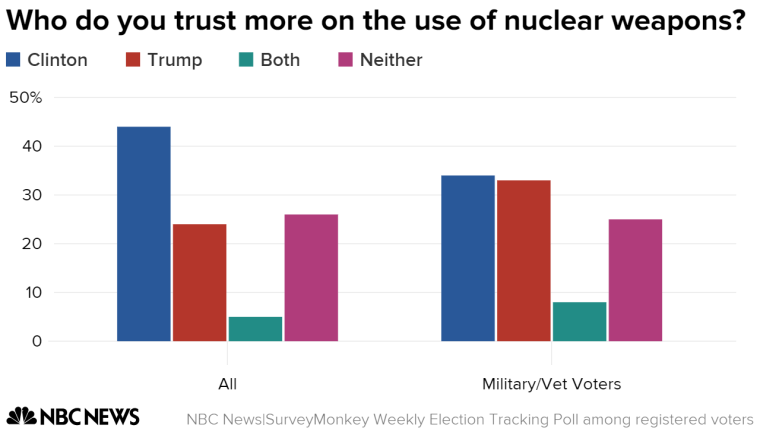
Overall, more voters would trust Clinton to make the right decisions about the use of nuclear weapons (44 percent), but a quarter would not trust either her or Trump to handle these issues. An 84 percent majority of Clinton’s supporters trust her more to make the right decisions about the use of nuclear weapons. And while a majority of Trump’s supporters (55 percent) say they would trust him more on nuclear weapons policy, a sizable minority (31 percent) says they would not trust either candidate.

Clinton’s campaign is working to exploit her advantage on the nuclear issue. Starting Friday, a new campaign ad by the pro- Clinton super PAC Priorities USA will air that depicts Trump as a war-loving candidate who is unfit to lead the country because of inflammatory statements regarding ISIS and the use of nuclear weapons.
The NBC News|SurveyMonkey Weekly Election Tracking poll was conducted online August 29 through September 4, 2016 among a national sample of 32,226 adults who say they are registered to vote. Respondents for this non-probability survey were selected from the nearly three million people who take surveys on the SurveyMonkey platform each day. Results have an error estimate of plus or minus 1.0 percentage points. For full results and methodology, click here.
